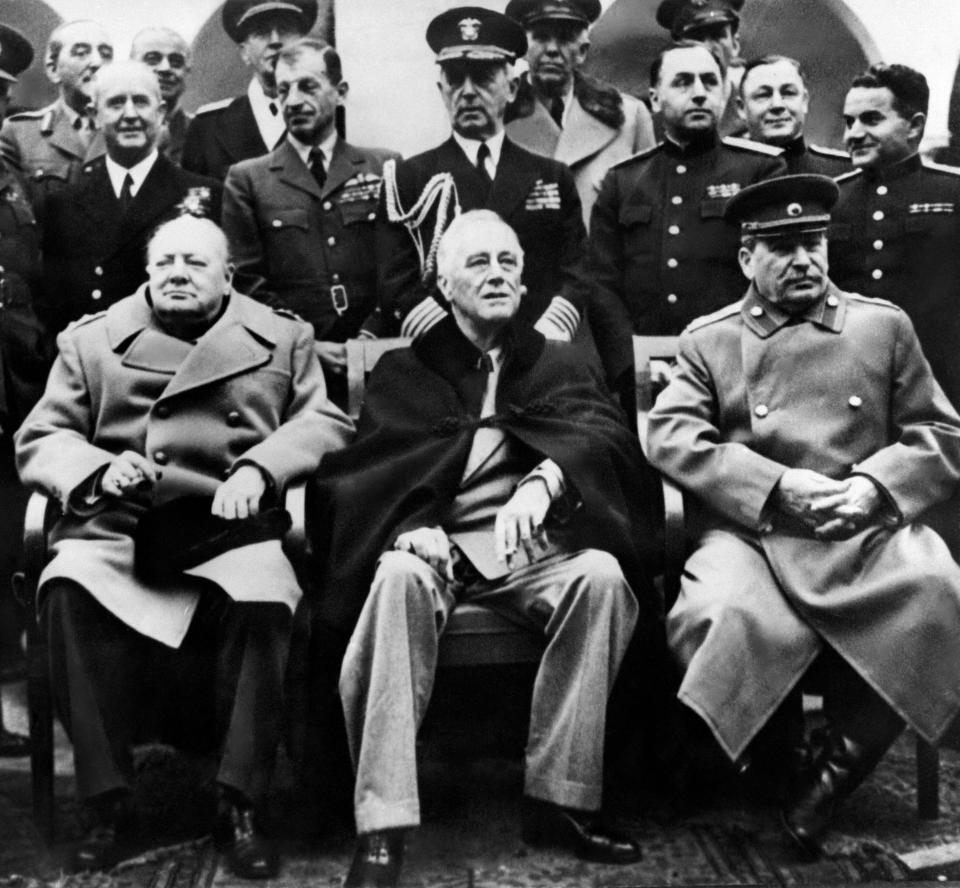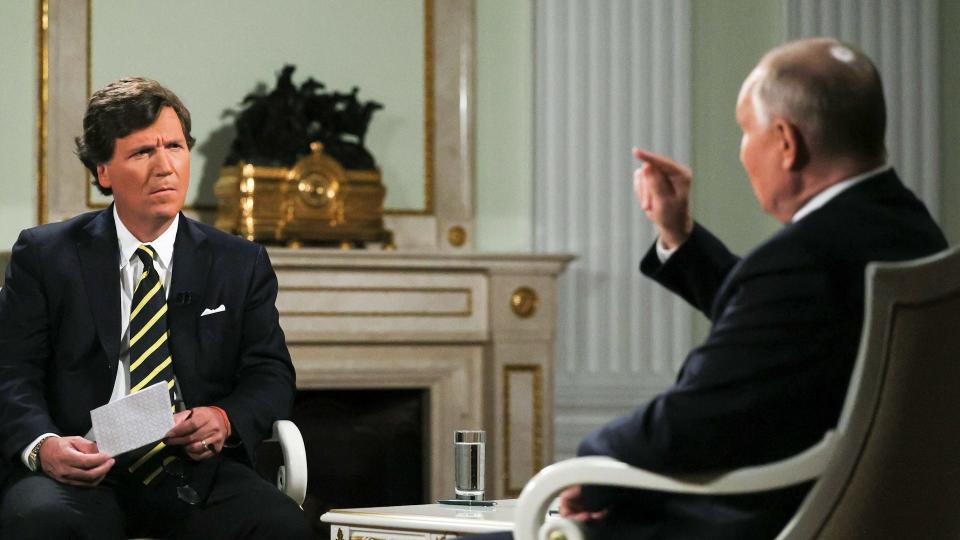Claybourn: To be a great leader, you must grasp the importance of history
- Oops!Something went wrong.Please try again later.
At the heart of political mastery lies a simple, yet often overlooked, truth: history and ideas matter.
In a world where the present increasingly dominates, leaders who engage deeply with the lessons of the past stand out. They don’t just react; they anticipate. They understand that history is not just a series of events but a reservoir of wisdom, offering insights into human nature, power dynamics, and the cyclical patterns of societies.
Consider the missteps of leaders such as George W. Bush in Iraq or Barack Obama in Ukraine.
Bush's 2003 decision to oust Saddam Hussein from power revealed a cursory grasp of the critical distinctions between Sunni and Shiite Muslims, and the repercussions of Saddam's Sunni-led regime's suppression of the Shiite majority. He neglected forecasts that his actions would culminate in a Shiite-dominated Baghdad in alliance with Iran, the regional Shiite power.
Similarly, Obama glossed over the historical bonds between Russia and Ukraine, leading him to downplay the hazards of tighter Ukraine-Europe ties. In a 2014 interview, Obama quipped, “I don’t really even need George Kennan right now.”
By March, Russia had annexed Crimea.
These were not just policy errors; they were failures to appreciate the depth of historical grievances and alliances. Such oversights underscore a broader trend: the diminishing role of historical consciousness in guiding leadership.
History, properly harnessed, wields power. It energizes, educates, and warns. The stories we sculpt from our past can mobilize societies.

Take Winston Churchill. His navigation through World War II’s darkest days drew heavily on his vast knowledge of British history. His speeches, rich with historical references, rallied a nation, creating a collective sense of purpose and destiny. Churchill’s ability to tap into history’s well to address the challenges of his time underscores the priceless value of historical and ideological literacy.
Similarly, Abraham Lincoln’s leadership sprang from his deep reverence for history and his strategic use of ideas to shape public opinion. Lincoln saw the nation’s identity as intertwined with its historical legacy. His speeches, especially the enduring Gettysburg Address, showcased a deep grasp of America’s foundational principles of liberty and equality. Lincoln adeptly navigated historical context and moral values to unify a fractured nation, guiding it through its most perilous period with a vision rooted in history yet looking forward.
The 21st Century’s complexities demand political leaders deepen their grasp of history, avoiding past mistakes while navigating future challenges. Historians should also step into political arenas, applying their analytical prowess and broad perspectives to governance. This requires a delicate balance − using history to enlighten without allowing it to become a tool for division.
But history is a double-edged sword: it can illuminate the path to wise governance or be wielded to manipulate and divide. Vladimir Putin’s manipulation of history illustrates the dangers of its misuse. His strategic use of historical narratives, particularly in his essay “On the Historical Unity of Russians and Ukrainians,” shows how history can be contorted to support expansionist goals.

In a conversation with Tucker Carlson, Putin reiterated Russia’s historical claims to Ukraine, using the past to legitimize aggression. This narrative, based on a selective reading of history, seeks to reshape present realities, showing how ideas can influence policy and action.
Using history goes beyond academic interest, becoming a crucial tool in leadership. Putin’s depiction of Ukraine as part of Russia, denying its sovereignty, demonstrates how leaders can mold reality with ideas, affecting both domestic and global perceptions for evil or good.
Political officials using history to mold narratives is not novel. From Pompey the Great to Stalin, who each built a personal library for ideological inspiration, the critical role of the battlefield of ideas was well understood. Dominating the narrative is tantamount to controlling power.
The diverse paths of Putin, Churchill, and Lincoln underscore the significant impact of a leader’s engagement with history and ideas. Such involvement can either propel a nation towards unity and progress or drag it into conflict and expansionist projects.
In times when the past is often contested ground for the future, the demand for leaders steeped in historical wisdom is pressing. History’s vast narrative offers not just cautionary tales but a guide for navigating today’s governance complexities with integrity, vision, and a shared sense of humanity.
This quest for enlightened leadership is not just scholarly idealism but a pragmatic imperative. We need a future where governance is not only responsive but also visionary, steered by the enduring light of historical truth.
Joshua Claybourn is an Evansville attorney and historian. Visit him online at JoshuaClaybourn.com and on X @JoshuaClaybourn.
This article originally appeared on Evansville Courier & Press: Claybourn: Great leaders grasp the importance of history

